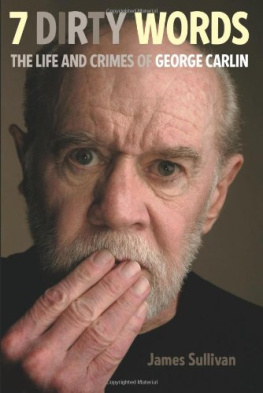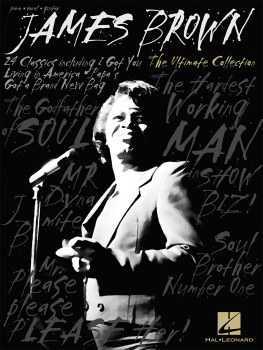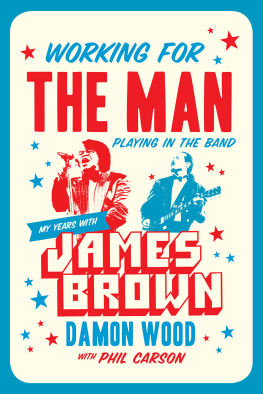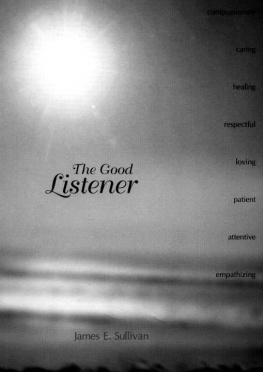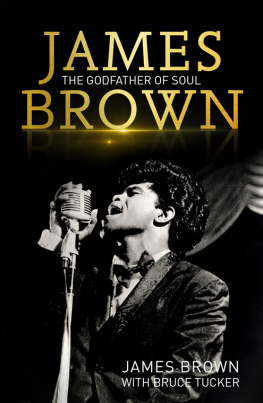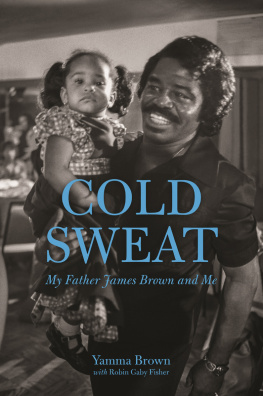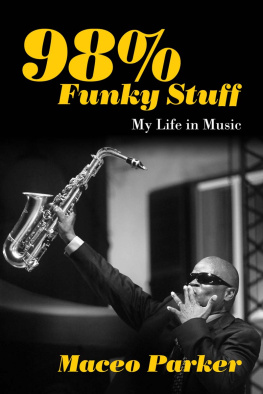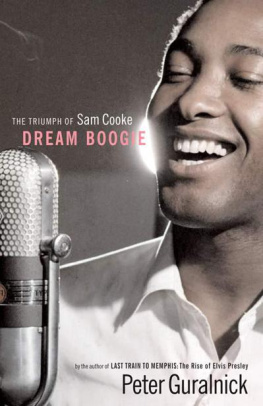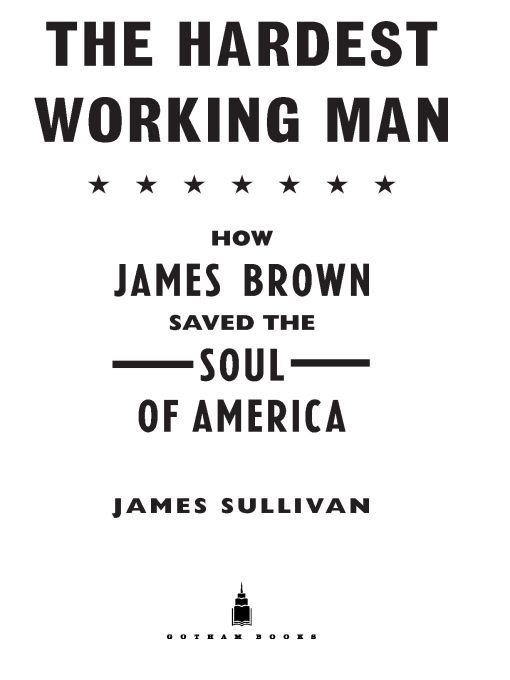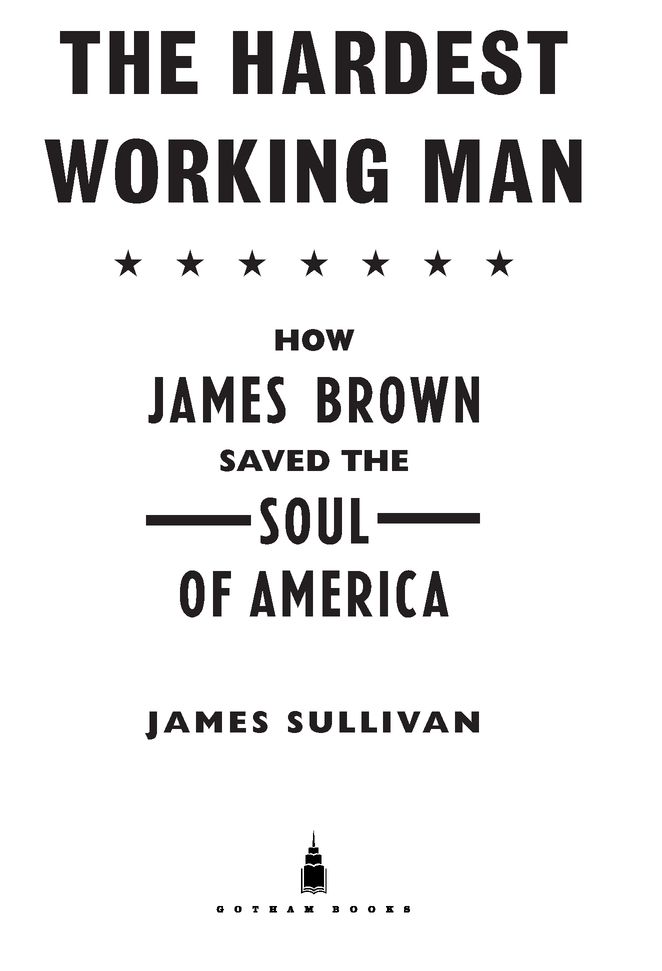Table of Contents
To my father
our very own Papa
FOREWORD
I remember the initial impact the Godfather had on me. In my mind I can still see myself and my second-grade peers slipping and sliding on the frozen patches of winter ice in Queens, New York. The thing that kept our balance was the rhythm of doing the James Brown, the dance that Mr. JB had claimed for his own bad self at the end of There Was a Time. The energy of Mr. JBs music was the bottled power of elementary school kids running wild. Just line em up at the schoolyard door... and open it. They have no idea where theyre headedthey just go. That, for me, describes the fuel of James Brown. Yes, James Brown was a man, but he had the boundless spark of a kid.
My parents kept a lot of records in the crib. They were a hip twentysomething black couple surrounded by times of turbulence. The records came bundled from the mail-order record clubs, so there were a lot of jazz discs, comedy, and soul. James Browns records had a lot of colors, courtesy of the King Records art department. Them records jumped out at you, but not nearly as much as JBs scream, and that rhythm section, on the albums inside. JAMES BROWN stood out from the packoutta sight and sound.
My grandmother used to subscribe to Look magazine, and Life. She and my grandfather tended to stack magazines, not records. It was Look that asked the question about Mr. JBwas he the most important black man in America? The cover was bluish, I remember. This was smack-dab in the middle of Vietnam, on the edges of the murders of Dr. Martin Luther King, Jr., and Robert F. Kennedy. It was an eerie echo of just a few years back, when President John F. Kennedy and Malcolm X were murdered. The country needed a common language about this madness going downwhy shouldnt it come from the cultural icons everyone listened to? But on the heels of the riots in Newark and Detroit, I guess dancing in the streets couldnt be delivered to the people by Motown, Stax, Atlantic, or anyone else but JB. After the release of Say It LoudIm Black and Im Proud, the governmentespecially a J. Edgar Hoover governmenthappened to understand the importance of JB for many reasons, both good and bad. The fact that mayors, politicians, the military, presidents, and vice presidents reached out to JB, while pop stations and the musical mainstream cut him off, is a piece of mind-boggling irony. That one song earned Mr. JB a lucky seven more years of black love from the hood, and that dont come easy.
In my humble opinion, Mr. James Brown was the most powerful black man in the immediate aftermath of the assassination of MLK. Blackfolk were looking for many answers on this ball of confusion in 1968. All Americans were looking for answers with baffled faces, but the black impulse was on a national Nat Turner vibe. I heard about the Boston Garden concert way after the fact. Being seven years old in New York at the time, the news for me was dealing with New Yorks issues and its own potential to blow up. I didnt go to school much that week. Boston was an afterthought, especially at a time when the emphasis was on local news and there was only a peephole each night for national and world news. Sportswise, the Celtics were coming back to get Wilts 76ers, but first black coach Bill Russells take on the racism problem in Boston added fuel to the speculation that there might be some local noise, tired of newenglandwhitey.
We live in a much different time today, and Im not talking racially. Im speaking technologically. Cable, documentaries, DVDs, bootlegs, YouTube, and the Internet have allowed thousands to check the actual vibe of the concert broadcast that night at the Boston Garden. Im still tripping today on the fact that this was a live broadcast designed to keep people off them Beantown streets. Paranoia until theres an answer, is what I call it. The James Brown Show was and is, to me, the incredible effect of music and willpower to freeze all else, for the joy of being entertained as one, by one, on the One. The footage carries the tension of a 1960s Hurricane Katrina. Hypnotizing. Paralyzing. Tantalizing. And yet he stopped and got everyone to Think, as yet another of JBs many hits preached.
No doubt the Godfather of Soul doubled as the ultimate Prince of Peace in a time of chaos. In fact, were still doubled over by this amazing showing, which grows in such significance by the decade.
Chuck D
PUBLIC ENEMY
January 2008
If Elvis Presley / is King,
Who is James Brown,
God?
AMIRI BARAKA, In the Funk World
OVERTURE
His mere presence was tumultuous, like freak weather. His singing, of course, was volcanic; his dancing, like a cyclone. There scarcely seems any other way to describe it: James Brown was a force of nature. He came on like the aurora borealis, with red, white, and blue spotlights splashing across the purple tuxedos of his eighteen-piece band, wrote a stunned correspondent for Time magazine in 1966, a decade after Please Please Please, the singers first hit. For a delirious crowd of fifteen thousand at Madison Square Garden, Brown commanded the stage like a one-man riot.
Eliciting such superlatives was James Browns stock in trade. He was, undoubtedly, an innovator of rhythm and a mighty performer, but he was also a peerless self-promoter. Im looking for something that nobody else does, he said. He marched through life under a flashing marquee of outrageously self-serving nicknames: The Godfather of Soul! Soul Brother Number One! Mr. Dynamite! Butane James! He compared himself to those cats Mozart, Bach, Beethoven, Strauss. He costumed himself as a black Superman, or a gaudy emperor. He considered himself a distinctly American hero.
A child of brutal poverty and neglect who reveled in his own Horatio Alger storythe shoeshine boy outside the radio station who later bought the stationBrown was pride personified. He was the original ghetto superstar, exulting in his identity as Langston Hughess darker brother. Theyll see how beautiful I am / And be ashamed, as the poet had predicted, and Brown lived out Hughess promise: I, too, sing America. By the late 1960s, senators and presidentsmen who made their livings with their mouthshad come to recognize that Browns supernatural voice was an instrument without parallel. Is he the most important black man in America? asked Look magazine.
Though Browns career was born at nearly the same moment as rock n roll, though he all but invented soul and funk, the bands he led might compare most closely with the jazz orchestra of Duke Ellington. In both cases, the music was scrupulously arranged yet designed to stimulate transcendent improvisation. Ellingtons Black, Brown and Beige was the abbreviated version of his grand plans for a jazz opera called Boola, the ageless title character of which he imagined as a mythic representation of the entire African-American experience. What Ellington started, James Brown finished. Brown, it might be argued, was Boolafrom Emancipation to self-determination, from vaudeville to bop to hip-hop.
In the pop music era, only Elvis Presley placed more songs in Billboards Hot 100, and no act but the Beatles has come close to matching the multigenerational longevity of Browns influence. Yet his true gift was not so much any particular God-given talent or stylistic permutation. It was the steel strength of his will. The thing about James Brown was this: He refused to take no for an answer.


